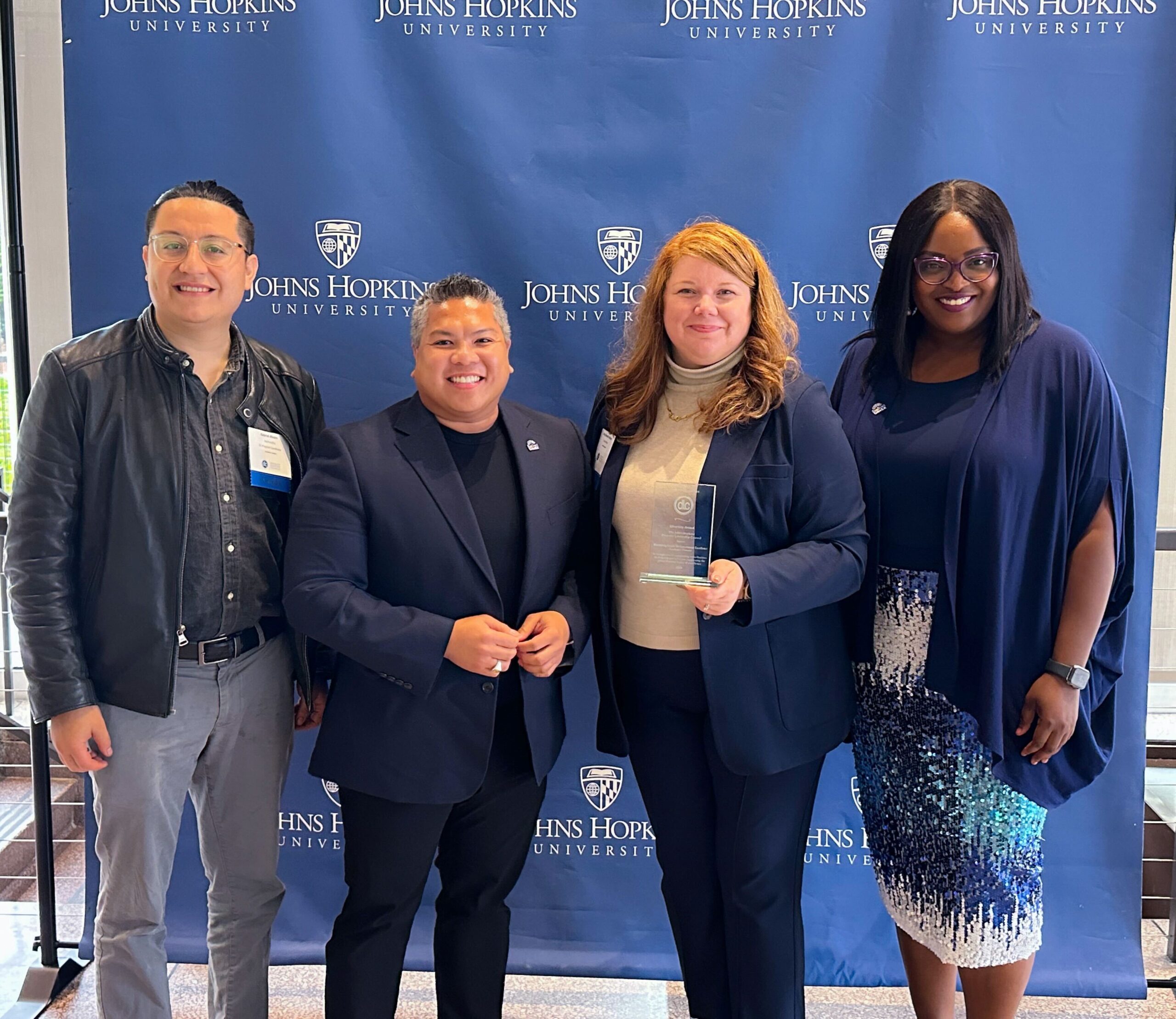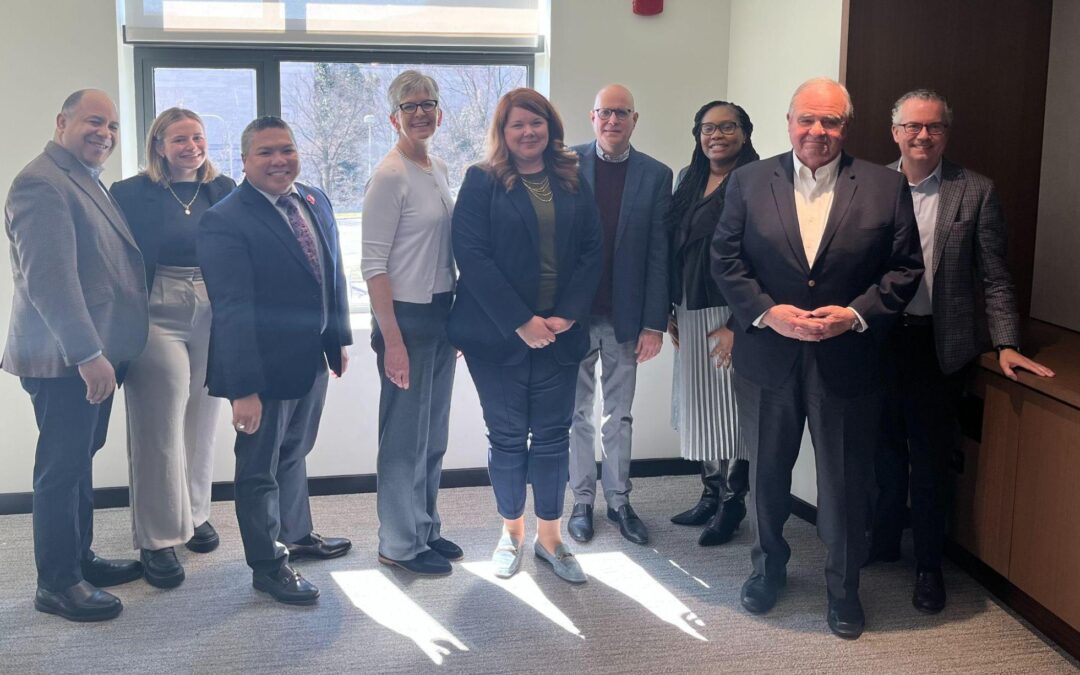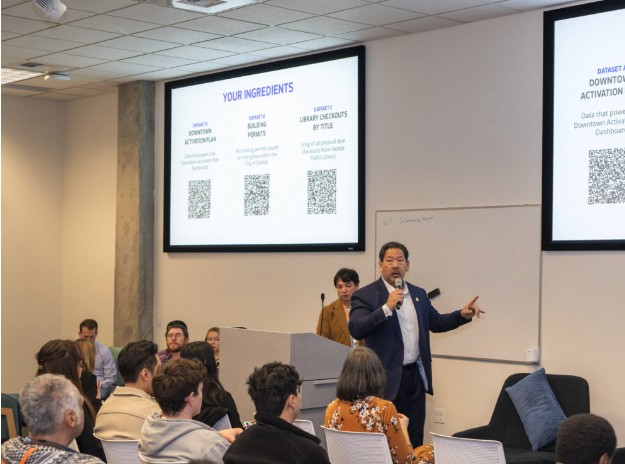
Last week, the Bloomberg Center for Government Excellence at Johns Hopkins University (GovEx) received a prestigious Diversity Leadership Award from the university’s Diversity Leadership Council. The council has recognized over 200 awardees at its annual ceremony since 2003 and we are honored to be among the list of recipients.
GovEx was recognized in part for the work the organization does to provide multilingual translation and interpretation for in-person and online events and courses. The following piece, written by GovEx staff leading this work, describes our process as well as key insights for leaders looking to promote and prioritize accessibility and inclusivity in learning practices.
By Tomeria Jordan and Gabriel Alvaro
The Localization Process
At GovEx, we understand that our success depends on our ability to communicate effectively with the leaders and municipal teams of the cities we serve across the Americas. To do this, we adapt our content, service delivery, and overall approach to specific linguistic, cultural, and regional needs.
To localize written content, we follow this six-step approach:
- Once GoveEx staff develop an English-language course, we submit a service request to our external translation partners.
- Translation is performed using GovEx’s custom machine translation model, developed in collaboration with our language solutions partner.
- Human experts from our language services partner organization revise the translated content.
- The localized content is delivered to GovEx.
- Our regional delivery partners perform a quality check.
- The final localized content is delivered to the target audience.
For live sessions using simultaneous interpretation, the process is slightly different:
- Once GovEx identifies a need for real-time translation, we submit a request for interpretation services to our external translation partner.
- Interpreters are sourced depending on the assignment.
- Preparation of interpreters using translated materials.
- Delivery of multilingual sessions
- Retrospective with interpreters and log of lessons learned.
The localization process for written content and live sessions happens simultaneously. Translated materials are used to prepare interpreters, deliver sessions and curricula, and localize the learning management system (LMS) to complement the online sessions and technical assistance. We also collaborate with regional partners to localize the content, ensuring it resonates with the target audience and addresses their unique needs and challenges.
Our language solutions partner provides a range of services to support our localization efforts, including:
- Translation: Expert translators, translation memory, and Human-AI synergy ensure high-quality translations. The partner has recruited translators and interpreters specifically dedicated to GovEx and specialized in working with organizations and data fields.
- Interpretation: Simultaneous and consecutive interpretation in English, Spanish, and Portuguese.
- LMS Localization: Subtitling, voiceovers, and translation of learning management system content.
These services have been applied across various GovEx-supported programs, such as the Bloomberg Philanthropies City Data Alliance, What Works Cities, GovEx Academy, and City AI Connect.
The impact of our localization efforts has been significant:
- Over 400,000 words of GovEx’s and partner organization’s materials have been translated.
- More than 100 hours of interpretation services, including 36 hours of relay interpretation, have been provided.
- Collaboration with various organizations has helped improve the localization process.
Lessons for Leaders
For success with any large-scale localization effort, teams need support from leadership at all levels. Below are three leadership lessons to help you initiate and support multilingual translation and interpretation processes within your organization or division.
- Acknowledge the need: It is important to evaluate and understand the diverse linguistic needs of the community you are serving. Acknowledgement is the first step in the process because it recognizes and appreciates the “why” behind the effort and keeps accessibility and inclusivity at the forefront.
- Set your team up for success: Setting your team up for success starts with support. This includes, but is not limited to, providing the right tools, training, and guidance to ensure the collective team can effectively carry out the necessary translation and interpretation tasks.
- Keep the mission aligned: As the process evolves, remember to keep the mission and goals at the forefront of the operation. This ensures everyone is working toward a common goal and can help support the organization’s efforts to promote equity and engage multilingual language learners.
Creating and sustaining a multilingual delivery process is key to supporting, engaging, and equipping learners of various cultures and backgrounds with the skills and knowledge to succeed.
The recognition from the Diversity Leadership Council underscores the importance of GovEx’s commitment to accessibility and inclusivity in learning practices. From translation to interpretation and LMS localization, we are dedicated to effective communication with diverse communities. By sharing the above strategies, we hope to encourage the prioritization of multilingual initiatives to create more inclusive and equitable learning environments.
Tomeria Jordan is an academic curriculum manager for service delivery and Gabriel Alvaro is a senior program coordinator. Both serve on the GovEx Academy team.



